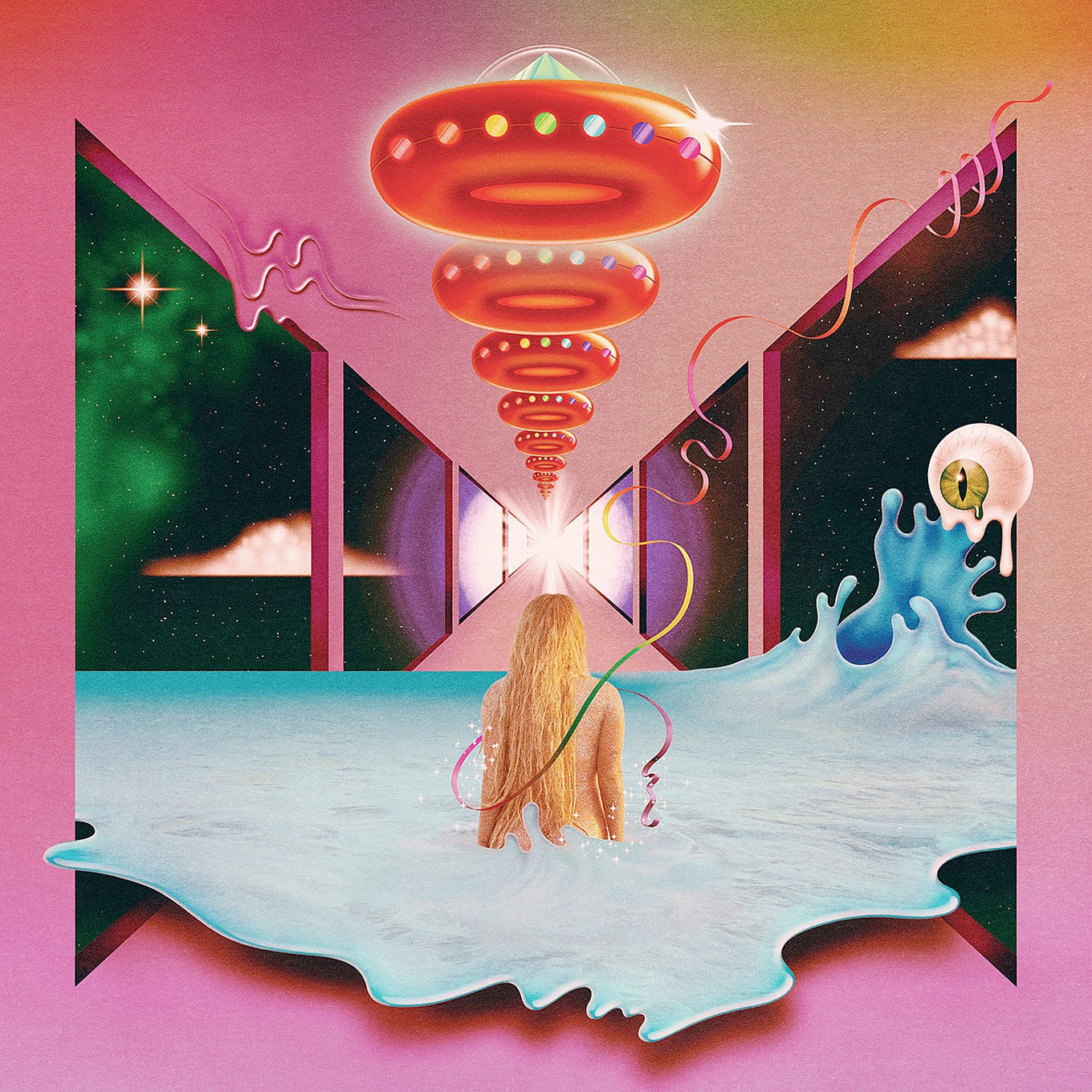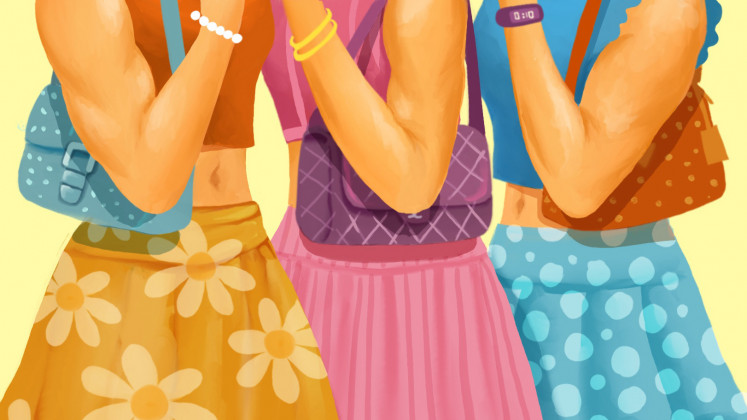Popular Reads
Top Results
Can't find what you're looking for?
View all search resultsPopular Reads
Top Results
Can't find what you're looking for?
View all search resultsAlbum Review: 'Rainbow' by Kesha
For Kesha Rose Sebert, her comeback contains damage, a weakened resolve.
Change text size
Gift Premium Articles
to Anyone
F
or musicians, comeback is a loaded word. It suggests silence, an inertia that in turn suggests a protracted strife with others or themselves.
For Kesha Rose Sebert — the sing-speaker, the party girl with a dollar sign in her name — her comeback contains damage, a weakened resolve.
Ever since her winding legal battle with her producer Dr. Luke, who denied the allegation that he raped her and also accused her of being a “fat [expletive] refrigerator,” the Ke$ha trope soured. It soured when she dropped the dollar sign, when she checked into rehab, when we saw her tearful face in a courtroom and, though not finally, when she released Rainbow.
Let’s acknowledge what compromises Kesha had to pony up to put Rainbowout: how many times a fist lands on a table? Listening to the 14-track record, it does not matter, but knowing its surrounding subtext — that Rainbow is out through Dr. Luke’s Kemosabe Records, the profits from which will pay for his studio bills — adds to the damage.
Musically, Rainbow finds her battling her impulses with the demands of a ghostly enemy looming in her lyrics. Or at least I think she does: “Learn to Let Go” is an uplifting cut (“The past can’t haunt me if I don’t let it”) and it sounds like a sure-fire hit. “Boots” is funky electronica, one that glides with bass notes that recalls Kesha’s “Tik Tok” days. Mostly self-written (helped by producers and songwriters, from Ben Folds, Rick Nowels to her mother, country songwriter Pebe Sebert), there’s a muted sense of commercial leanings on Rainbow, which to cynical ears may sound like a compromised credo set to an array of music.
Then again, Rainbow capitalizes on Kesha’s veracity to her character — a character that she once had to temper or tweak — so well that the record is a largely successful stab at a well-sequenced, full-fledged album.
Her gusto, her profanity, her crisp wordplay and the kaleidoscopic musical influences she summons — left as clues before — are intact. There is the orchestral, twinkling title track, a song composed on a toy piano that Kesha’s boyfriend had given her while she was in rehab. There is the low-high dynamic of the opener, “Bastards,” where a foul-mouthed Kesha seeks solace in guidance for an unspecific crowd.
You can single out the character of the songs here with little effort. That punk banger with electric guitar and Kesha’s scorched pipe? That’s “Let ‘Em Talk,” a collaboration with Eagles of Death Metal — the kid who danced to Iggy Pop rips it here. It doesn’t stop there: there’s also “Boogie Feet.”
In its lead-up, Rainbow was billed as Kesha’s overdue foray into country folk (teased by, say, Warrior’s “Wonderland”) and its flair does permeate a lot of the songs. There’s “Hunt You Down,” a modern update of a honky-tonk song, “Spaceship,” the acoustic closer that lends itself to her spoken-word creed and “Godzilla,” a pleasant, acoustic cut.
Rainbow could’ve been a messy album if it had not been guided by a powerful instrument: Kesha’s voice and authorship. She left studio ad-libs and laughter in some songs. She brought in The Dap-Kings Horns for “Woman,” an electrifying call to arms inspired by Donald Trump’s bid for reality stardom.
“I’m a [expletive] woman!” she shouts. Her voice has never sounded better here, but granted, we’ve only got two albums to compare it to. That is, if you don’t want to consult her demos on YouTube, her live performances (her cover of Bob Dylan’s “Don’t Think Twice, It’s Alright,” is one of the eeriest Bob Dylan covers I’ve heard).
Kesha’s strength made her comeback possible. Still, it’s an album that’s part of the 5-album deals she struck with the ghost of her past (Dr. Luke did not contribute to Rainbow).
Most of the lyrics here, like on lead-single “Praying,” are prescriptive, genuine words of advice to herself and others. Kesha’s not free yet; her legal battle is ongoing but if you only knew her by Rainbow alone, you’d probably think twice.











